Is It OK to Pray for a UK Championship?
Early in March 1996, I made a deal with God.
I promised that I would cease and desist from my obnoxiously anti-social behavior following Kentucky hoops defeats if the Holy One would grant me my ultimate wish: the first Wildcat national championship since the Goose set my childhood bar so high 18 years prior. While Pitino’s super squad didn’t need my divine appeal, I’ve honored my sacred commitment…for the most part. And as a person of faith, I resolved to never again make the blasphemous presumption that the Lord would care about the outcome of a sporting contest.
But like many religious Cats fans, I can’t help myself. Maybe it’s when a shaky shooter stands at the free throw line near the end of a tight game. Or it’s halfway up the arc of an Aaron Harrison three pointer in the postseason. I simply find myself paralyzed, reflexively calling on God’s power to part the white net.
It’s no wonder we mix basketball and faith. As I’ve written often in these virtual pages, there’s a near-religious connection between the Big Blue Congregation and its signature hoops squad. Our Cats unite our Commonwealth in spiritual harmony like no other force; on Game Day, Rupp Arena becomes, for a few hours at least, a cohesive, interdependent community: Fans who might disagree sharply on matters of politics, lifestyle, or just about any topic, join voices in passionate advocacy of our cagers. Consider the “Y” tradition: It borders on a holy sacrament — the modern equivalent of a high priest standing in the middle of the Great Temple, reaching toward the heavens, bringing the blue-attired parish to its feet and lifting the faithful into frenzied revival.
This year, The Purr-fects haven’t required us to ask for divine intervention too often. But as we approach the Biblically significant win #40 (days and nights of The Flood, years in the desert, days Moses spent on Mt. Sinai), I thought I’d ask four huge Kentucky fans — who happen to be a priest, two ministers and a rabbi walk into a bar — if it was OK to pray for a ninth UK NCAA championship.
There’s perhaps no better situated faith-based authority on Kentucky basketball than the Rev. Dr. Thomas H. Peoples, Jr., who can see Rupp Arena (not Alaska, alas) from the porch of the Historic Pleasant Green Missionary Baptist Church that he’s pastored for decades on West Maxwell Street. Peoples — who attended UK and has lived most of his 76 years in Lexington — cites for inspiration Philippians 3:14: “ I press on toward the goal to win the prize for which God has called me heavenward in Christ Jesus.” The Reverend suggests that this Bible verse reminds us that “there’s nothing wrong if you are asking God for a victory in all of your campaigns.” But pray-er beware, notes Peoples, “Sometimes God will say ‘no.’ Sometimes prayers are answered, but they might not be answered to our liking. Prayers are answered to our good.”
Rev. Peoples exalts the religious passion of the Big Blue Nation: “There’s nothing wrong with a good spirited community praying for the spirit of the team. They may not be praying as much for a win, but for good sportsmanship, the team giving the best they have, standing for religious principles.” For those of us committed to prayer, Peoples offers this enlightened advice: “Let’s pray that our boys put their best foot forward; that they give it all that they have; that they harness all of their talent and skills; that they act as a team and follow their coach’s advice. Let’s pray that our young men might become achievers. If winning is the result, then great. If they don’t win the game, but still achieve, then they win in the end.”
Indeed, praying for basketball achievement can sometimes be a very good thing, says Father Jim Sichko, a priest of the Lexington Diocese and Pastor of St. Mark Roman Catholic Church in Richmond. The Pittsburgh native, who has adopted the Cats during his 16-year residence in the Bluegrass State, believes that anytime anyone talks to God in prayer, it is a blessing: “It is showing that there is a need for God in your life; the person recognizes that God can do far more that any human can do as an individual.”
Father Jim questions whether God has more important things to do than to worry about a game, and he urges us to be realistic: “We must recognize that when we pray, we have to be open to the answer — the answer will not always be ‘yes.'” Sichko also reminds the Big Blue Flock that connecting with God should not be limited to Game Time: “When you are praying for that win, I hope that God recognizes your voice. Is he familiar with you praying, or is this out of the blue that he hears from you?” I.e., don’t forget about Middle East peace.
Rabbi David Wirtschafter concurs with the Father’s counsel on the context of prayer. A living embodiment of Governor Happy Chandler’s maxim that “I never met a Kentuckian who wasn’t coming home,” Wirtschafter was born in Lexington (where his ophthalmologist father treated Adolph Rupp), left after the first grade, and is finally returning this July at the age of 45 to lead Temple Adath Israel, just down Main Street from his beloved Cats. He cites an unlikely source for his rabbinic inspiration: UCLA’s legendary coach John Wooden, who once stated “I never pray to win a game.” The rabbi suggests that the Wizard of Westwood’s philosophy is consistent with Jewish thought: “We are forbidden to pray for the impossible or the inappropriate. We don’t trouble Heaven for what we can’t do, or for what is entirely in our own hands.”
However, the rabbi notes that Judaism does not deny wants and desires. He cites the Birchat Hashanim, the weekday prayer for abundance: “Bless this year, O Lord our God, and let its produce bring us well-being.” In that daily prayer and other blessings, Wirtschafter acknowledges, “we ask God for things: knowledge, prosperity, rain in the proper season. There’s nothing wrong with praying for success; the problem is with worshipping success.”
Praying for basketball wins won’t likely produce any material impact, suggests The Reverend Mark T. Davis, teaching elder at Lexington’s First Presbyterian Church: “It represents a view of prayer that’s contrary to me.” But the minister who roots for UK “364 days a year” (he’s a Tarheel alum) doesn’t think that such prayer is invalid: He cites theologian John Calvin’s proposition that prayer is the sincere offering of the heart’s earnest desire, with the confidence that there is One that hears us.
Davis also relies on Christian philosopher James K. A. Smith for the notion that today’s arenas house our public liturgy. “If you want to understand the nature of the contemporary soul, you go to where the liturgy shapes us,” the pastor shares. “The first time I went to Rupp Arena, it is fair to say, it was a semi- or qualified religious experience. The banners, the lights, the National Anthem…20,000 people with one single focus…It is very rare and unusual in life that there is such a shared experience. There are no Jews, Protestants or Catholics, just fans in one common cause.”
So there it is, sports fans: At least according to this Big Blue sample, our prayers are not likely to affect the arc of a shot, or the outcome of a game. But from a Judeo-Christian perspective, prayer is almost always a good thing, and any time a congregation joins together in the acknowledgement of a higher power, or in a spirit of communal joy and passion, it’s a cause for rejoicing.


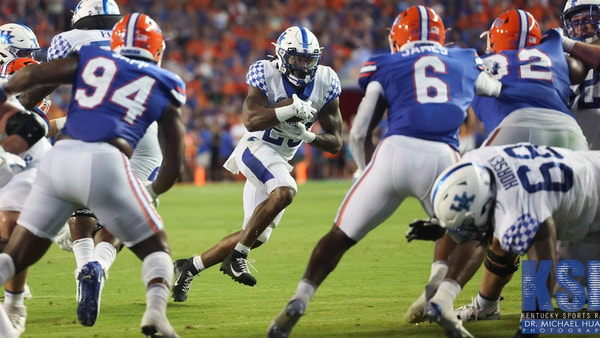
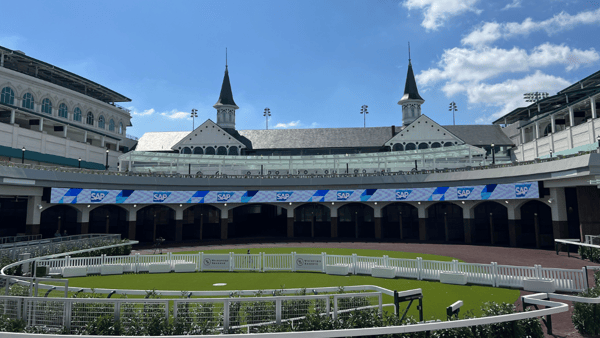
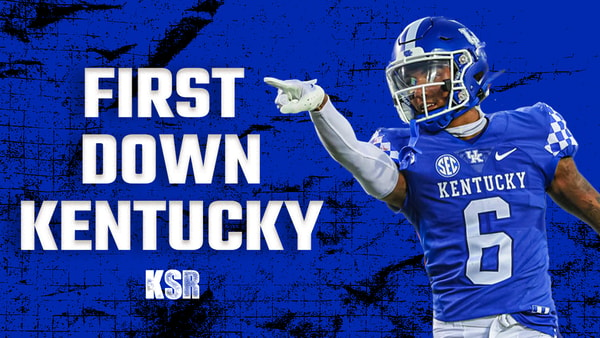
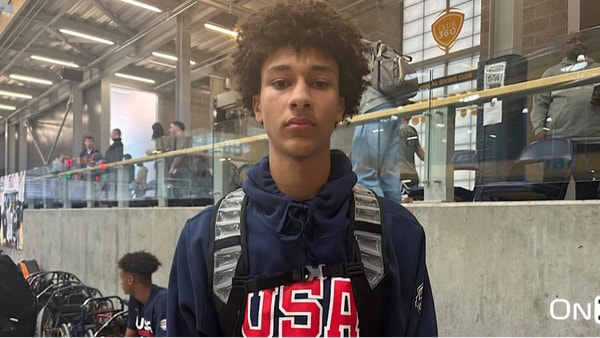
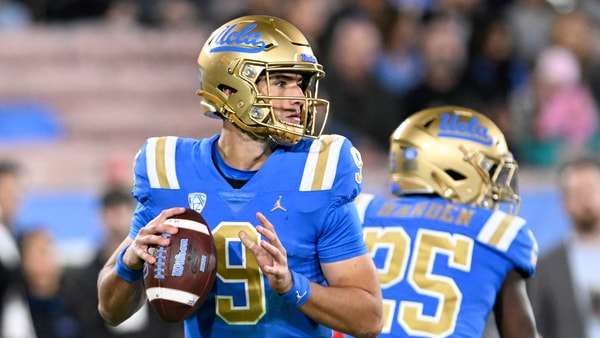
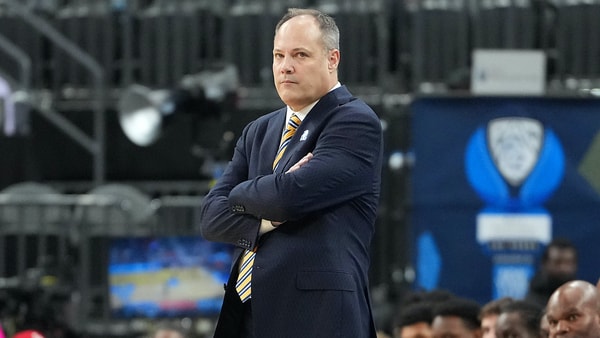
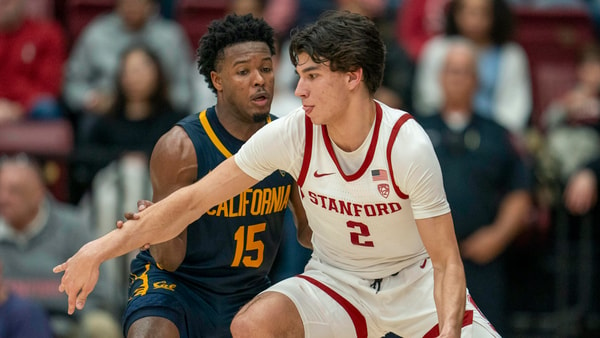
Discuss This Article
Comments have moved.
Join the conversation and talk about this article and all things Kentucky Sports in the new KSR Message Board.
KSBoard